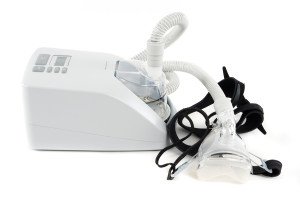How Your Dentist Can Treat Your Sleep Apnea
 If sleep apnea goes untreated, there are a number of different health concerns and issues that can arise. For many individuals suffering with this common sleep disorder, they are at risk of succumbing to one or a combination of the following physical or psychological conditions:
If sleep apnea goes untreated, there are a number of different health concerns and issues that can arise. For many individuals suffering with this common sleep disorder, they are at risk of succumbing to one or a combination of the following physical or psychological conditions:
- Chronic headaches or migraines
- Depression
- Diabetes
- Heart attack, heart failure, and/or irregular heartbeat
- High blood pressure (hypertension)
- Increased ADHD (Attention Deficit Hyperactivity Disorder)
- Stroke
Furthermore, sleep apnea could eventually lead to academic underachievement in adolescents and children, motor vehicle accidents, and poor performance in school or on the job.
Treating Sleep Apnea At Home
Although there are a number of ways that sleep apnea can be treated by dentists, physicians, and surgeons, there are ways to treat the milder cases of this condition by making a few behavioral changes at home including:
- avoid drinking alcohol
- improve breathing by changing sleep positions
- lose weight
- quit sleeping on your back
- smoking cessation
- stop taking sedatives or sleeping pills
The dentists at Community Dental Group may also have a few recommendations for treating your sleep apnea at home. However, if your sleep apnea is more severe, then other types of treatment may be recommended.
CPAP or Continuous Positive Airway Pressure
This treatment method involves the use of a mask that you wear while sleeping and covers your nose and/or mouth. There is a hose attached to your mask which in turn is hooked up to an air-pumping machine. The air is delivered to your nose via this device and in turn, it helps keep your airway open so that you can breathe during sleep. Although this is a moderately invasive treatment, CPAP is still the most commonly recommended method for treating this sleep disorder today.
Invasive Surgical Procedures
There are 3 different surgical procedures used to treat Obstructive Sleep Apnea, all of which are the most invasive forms of treatment being used today. In addition to their invasiveness, there is also the risk of complications with these different procedures.
- Mandibular maxillar advancement surgery – this re-contouring procedure removes excess flesh from facial areas such as the jaw bone, nose, throat, and tongue in order to correct a facial problem or obstructions in the throat. Each of these conditions typically contributes to the disorder.
- Nasal Surgery – correcting a deviated septum oftentimes relieves the symptoms of OSA, especially the snoring.
- UPPP or Uvulopalatopharyngoplasty – a UPPP procedure is oftentimes performed in order to widen the airway. Soft tissue is removed from the palate and the rear of the throat in order to increase the airway’s width.
Specialized Dental Devices
Community Dental Group can provide you with dental/oral appliances that are inserted into the mouth to move the lower jaw forward and help prevent the airway from closing. Not only does this correct the snoring issue, it enables the patient to enjoy a better quality of sleep and get a decent night’s rest in the process. For more information on sleep apnea and the dental appliances that we provide please contact us today.